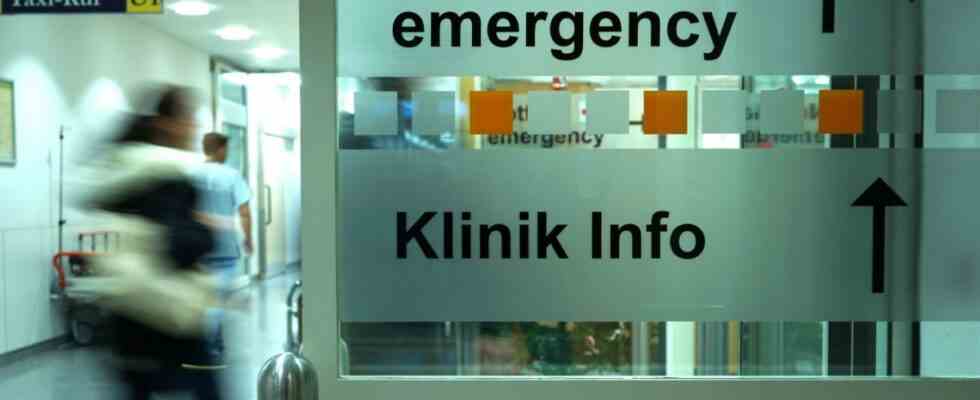Axel Fischer, Managing Director of the Munich Clinic, didn’t think twice. He invited 35 Ukrainian employees from the five municipal hospitals in Schwabing, Bogenhausen, Harlaching, Neuperlach and the clinic on Thalkirchner Strasse to a breakfast. As soon as the first refugees arrived in Munich, he discussed with them how to help people from the war zone who come to the clinic and need medical help. Since then, all Ukrainian employees have been helping – translating. And: They were each given three days of special leave to support friends and relatives when they arrived and when they went to the authorities.
Fischer explains that most of the patients who come to the clinics are treated via the emergency room. The rush is still “manageable”. 80 people from Ukraine are currently being treated in the Munich clinics. The severity of the illness ranges from minor injuries to oncological care. Pregnant women would come, for example, to continue the care for themselves and the unborn child. According to Fischer, many weakened and dehydrated babies are also treated. And many, says the managing director, are simply “exhausted”.
the “Advent calendar for good works of the Süddeutsche Zeitung” offers support to people in need – these days especially those fleeing the war in Ukraine. If you want to help, you can donate to the SZ Advent calendar:
“Advent calendar for good works of the Süddeutsche Zeitung eV”
Stadtsparkasse Munich
IBAN: DE86 7015 0000 0000 6007 00
BIC: SSKMDEMMXXX
Purpose: Ukraine
You can donate online here. Every donation goes to a good cause without any deductions. Süddeutsche Verlag bears all material and administrative costs. An overview of the other options available for providing aid to war victims can be found at: www.sz.de/ukrainehilfe
The lines in front of the Migration Office are long. Above all, people want money and a treatment certificate for outpatient medical treatment or dental treatment. That was the case for the first two weeks. In the meantime, privately accommodated refugees can also apply for these services in the social community centers in the respective districts. You have to wait here too. It can take a while until everyone has completed the necessary registrations and has the white or yellow treatment certificate in their hands.
Treatment is also provided without a certificate
“We’re not waiting for the bills,” says Fischer. In the clinics, people are helped unbureaucratically. Simply by submitting your passport or other papers. Fischer expects the same from other hospitals and trusts that the advance payments made by the clinic will be reimbursed later. That worked, he says, during the Corona period. However, there is an urgent need for interpreters who can translate long medical letters from doctors, for example for oncological treatment. According to Fischer, that would be a great help. Because the Ukrainian employees could not afford that in time.
Fischer is also thinking about what could come next, for example if the seriously injured and people with burn injuries come to Germany from the Ukraine, maybe flown to Munich. “Then,” he says, “we’ll have to reposition ourselves.” So far, the Munich Clinic has sent medicines and medical supplies worth a six-figure sum to Ukraine. In the beginning, according to Fischer, it was about bandages, among other things. Now the requirements are getting bigger. Now it’s about important surgical instruments, for example for severe bone injuries.
The warehouses are well stocked
The experience in the Corona years helped with the planning and all logistical processes: The warehouses of the Munich clinic are well stocked. You have to keep an eye on it, says Axel Fischer, and make sure that everything fits.
Back to breakfast: Axel Fischer will plan another one. This time for all Russian employees of the Munich Clinic. Because the internal climate is very important to him. Peace also begins here, says Fischer.

